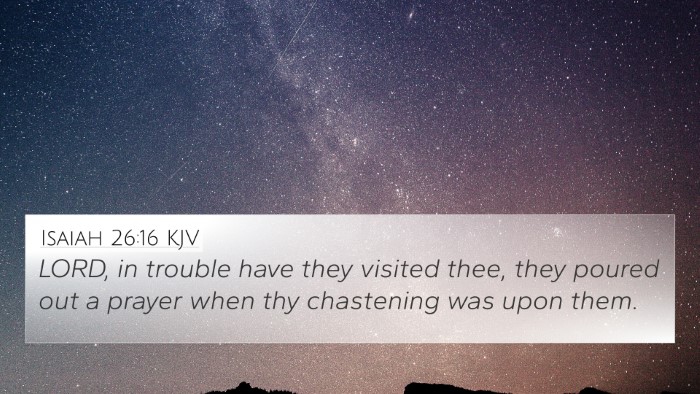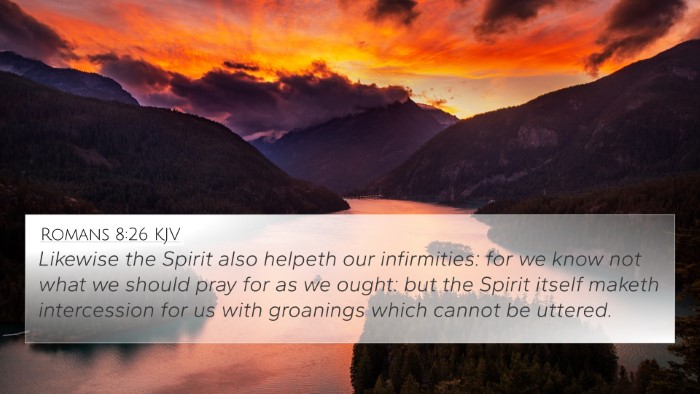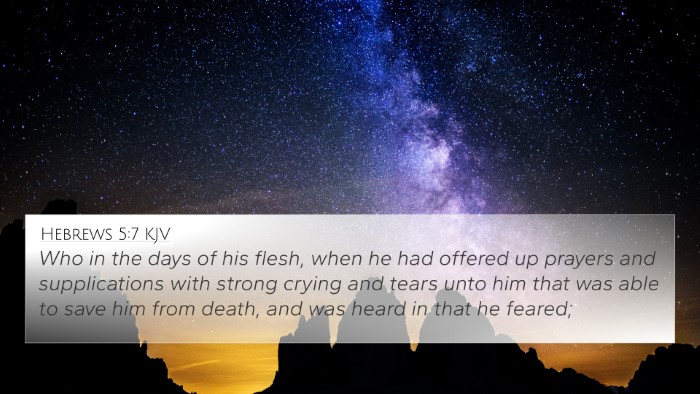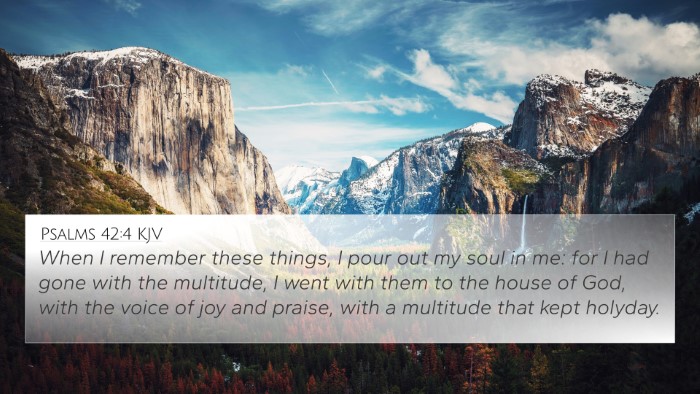Psalms 142:2 - Meaning and Interpretation
Psalms 142:2 states: "I poured out my complaint before him; I showed him my trouble." This verse encapsulates a pivotal moment in the psalmist's life, characterized by deep distress and a yearning for divine intervention.
Overview and Context
The psalm is attributed to David, written during a time of personal crisis. It reflects the themes of lamentation and supplication. As noted in Matthew Henry's Commentary, this psalm is a heartfelt invocation for God's help in periods of extreme emotional turmoil. It emphasizes the necessity of being open and honest with God regarding one's struggles.
Verse Breakdown
- "I poured out my complaint before him" - This phrase suggests a complete release of emotions, paralleling 1 Peter 5:7 where believers are encouraged to cast their cares upon the Lord.
- "I showed him my trouble" - Indicative of vulnerability, the psalmist acknowledges his situation. This can be compared to Psalms 39:2, where the act of opening one's heart to God is also emphasized.
Theological Insights
According to Albert Barnes' Notes, this verse highlights the importance of transparency in prayer. It reiterates the belief that God already knows our troubles. Hence, bringing them to Him is a way of fostering intimacy and reliance on His strength.
Adam Clarke's Commentary adds that this act of pouring out troubles is therapeutic and essential for spiritual healing. It illustrates the bond between God and the believer, encouraging individuals to find solace in confession.
Bible Verse Cross-References
This verse directly connects with several others, enhancing its meaning through the lens of comparative Bible verse analysis:
- Psalms 102:1 - "Hear my prayer, O Lord; let my cry come to you!" - A similar plea for God’s listening ear in times of distress.
- Psalms 10:17 - "O Lord, you hear the desire of the afflicted; you will strengthen their heart; you will incline your ear." - God’s attentiveness to the afflicted.
- Philippians 4:6-7 - "Do not be anxious about anything, but in everything by prayer and supplication with thanksgiving let your requests be made known to God." - Corresponds with the act of presenting one's troubles to God.
- Psalms 55:22 - "Cast your burden on the Lord, and he will sustain you; he will never permit the righteous to be moved." - Emphasizes divine support and sustenance.
- Matthew 11:28 - "Come to me, all who labor and are heavy laden, and I will give you rest." - A call to seek relief in Christ, aligning with the psalmist’s plea.
- Jeremiah 29:12 - "Then you will call upon me and come and pray to me, and I will hear you." - Further establishes God’s promise of attention to the prayers of His people.
- Job 30:20 - "I cry out to you, O God, but you do not answer; I stand up, but you merely look at me." - Explores the complexity of crying out to God amidst silent suffering.
Connecting Themes
The linking of Psalms 142:2 with the aforementioned verses illustrates a consistent theme in Scripture: the desire for divine communication during tribulation. The Bible cross-reference guide serves as a valuable tool for discovering these connections. The underlying thread across these verses is that of expressing sorrow and seeking support from God.
Inter-Biblical Dialogue
Examining this verse through cross-referencing Bible study methods reveals the dialogue between Old and New Testament texts regarding prayer and supplication. This is evident as believers are continually challenged to bring their anxieties before the Lord.
Conclusion
Psalms 142:2 not only exemplifies the essence of lament in the psalms but also aligns with numerous Biblical teachings that emphasize openness in prayer and reliance on God. The act of pouring out one’s soul parallels various scriptures that encourage believers during distressing times.











